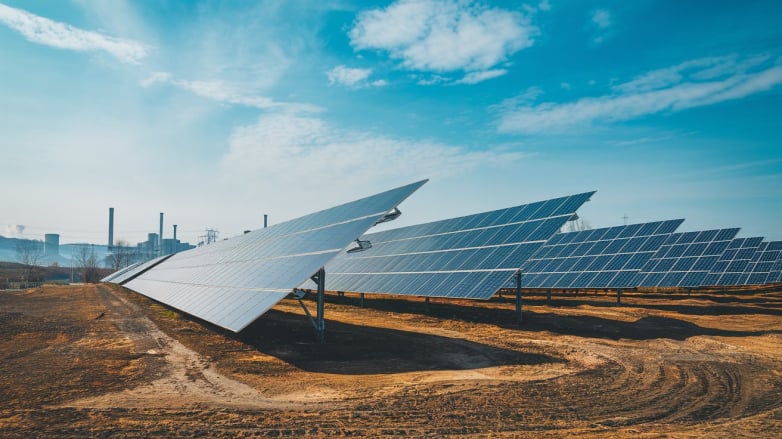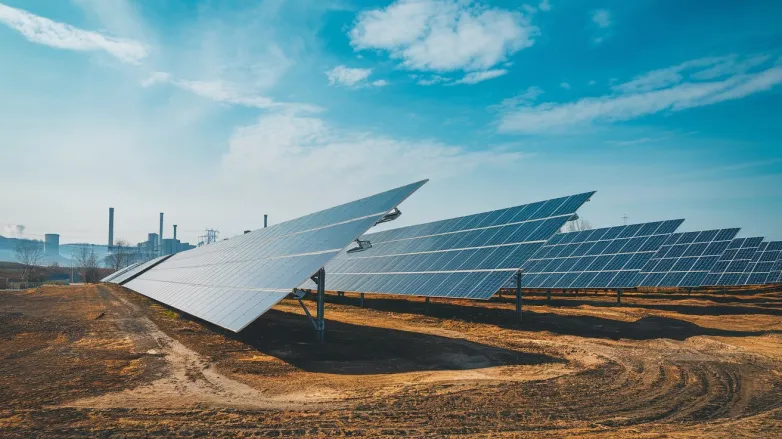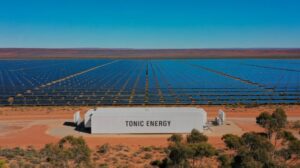Runergy Opens 2-GW Solar Plant in Alabama

Oct 7, 2024 03:29 PM ET
- Jiangsu Runergy launches a groundbreaking 2-GW solar module factory in Alabama, boosting local production and powering the U.S. renewable energy revolution!

Jiangsu Runergy New Energy Technology Co Ltd has commenced production at its new 2-GW solar module factory in Huntsville, Alabama. This facility marks a significant milestone in the company’s strategy to expand its presence in the North American market and address rising local demand for solar energy. Runergy aims to meet U.S. renewable energy targets by delivering locally produced solar modules, with its first customer orders set to be fulfilled this month.
By the end of 2023, Runergy’s cumulative solar cell shipments are expected to exceed 65 GW. The company’s global production footprint includes facilities across China, Thailand, Vietnam, and now the U.S. A report by the Solar Energy Industries Association indicates that U.S. solar module manufacturing capacity has surged to over 31 GW, nearly quadrupling since the passage of the Inflation Reduction Act in 2022.
How does Runergy’s new factory impact U.S. solar module manufacturing and demand?
Certainly! Here is an expanded article focusing on the impact of Runergy’s new factory on U.S. solar module manufacturing and demand, formatted in a bulleted list:
Increased Local Manufacturing Capacity:
- Runergy’s new 2-GW factory in Huntsville, Alabama, enhances the overall manufacturing capacity of solar modules in the U.S., contributing to a more robust domestic supply chain.
- The addition of this facility aligns with the growing trend towards localized manufacturing in response to supply chain disruptions experienced during the pandemic.Meeting
Rising Demand:
- As the U.S. government focuses on achieving renewable energy targets, including significant solar power contributions, Runergy’s operation will directly address increasing demand for solar modules from residential, commercial, and utility-scale projects.-
- The factory’s operations are expected to facilitate quicker response times for U.S. projects, reducing reliance on imports and increasing supply stability.
Job Creation and Economic Impact:
- The establishment of Runergy’s factory is likely to create numerous job opportunities within Alabama, which can stimulate local economies and contribute to workforce development in the renewable energy sector.
- Other industries related to solar manufacturing, such as logistics and material supply, may also benefit from the presence of Runergy in the region.
Advancing Competitive Edge:
- By producing solar modules locally, Runergy may help to increase U.S. competitiveness in the global solar market, potentially attracting more investment and innovation to the sector.
- Enhanced manufacturing capabilities can lead to price reductions and improved product availability, benefiting consumers and businesses looking to adopt solar technology.
Supporting Transition to Renewables:
- The new factory aligns with national and state-level initiatives to transition to renewable energy sources, thereby supporting policies aimed at reducing carbon emissions and combating climate change.
- Runergy’s investments may encourage other foreign and domestic companies to establish manufacturing bases in the U.S., further expanding the solar industry’s footprint.
Technological Advancements:
- With the new factory, Runergy may leverage advancements in technology and innovation, improving the performance and efficiency of solar modules produced in the U.S.
- Integrating cutting-edge technologies could lead to the development of new products and solutions that enhance overall energy generation and appeal to a broader market.
Influencing Policy and Regulation:
- Runergy’s entry into the U.S. market may influence regulatory frameworks and policies concerning renewable energy manufacturing, with potential for advocacy for supportive measures that further strengthen the industry.
- The factory’s operations could serve as a benchmark for compliance with U.S. environmental standards, pushing other manufacturers to align with best practices.
Potential Challenges and Market Dynamics:
- While the expansion of manufacturing capacity is positive, the market may face challenges such as fluctuating raw material costs, trade policies, and competition from other solar module manufacturers, both domestic and international.
- Ongoing developments in U.S.-China trade relations could also impact the dynamics of solar module pricing and availability, especially if tariffs or other trade barriers are enacted or adjusted.
In summary, Runergy’s new factory in Huntsville is poised to significantly impact the landscape of U.S. solar module manufacturing and demand, driving local economic growth, supporting renewable energy goals, and enhancing the overall competitiveness of the U.S. solar market.
SOLAR DIRECTORY
Solar Installers, Manufacturers




